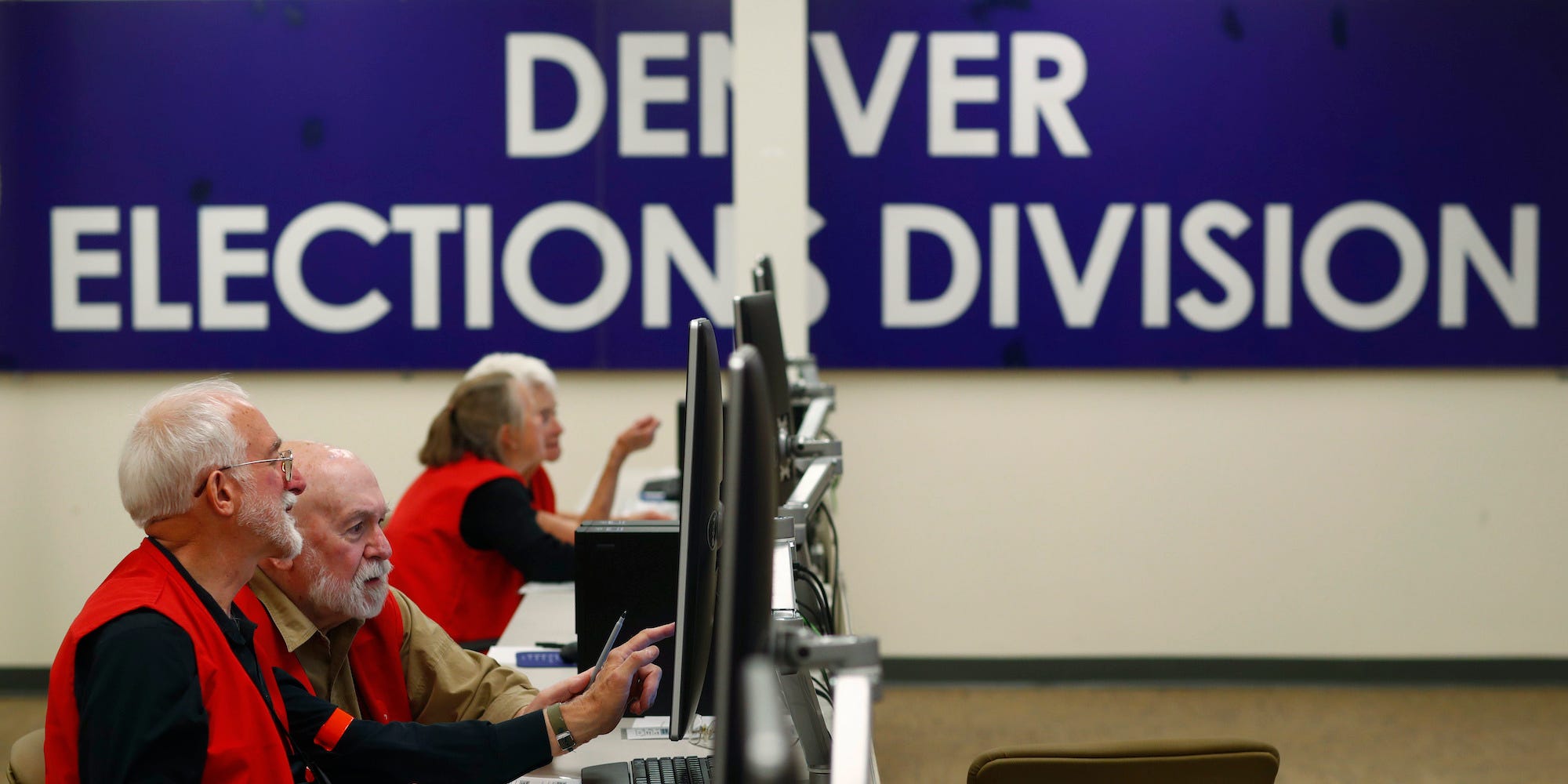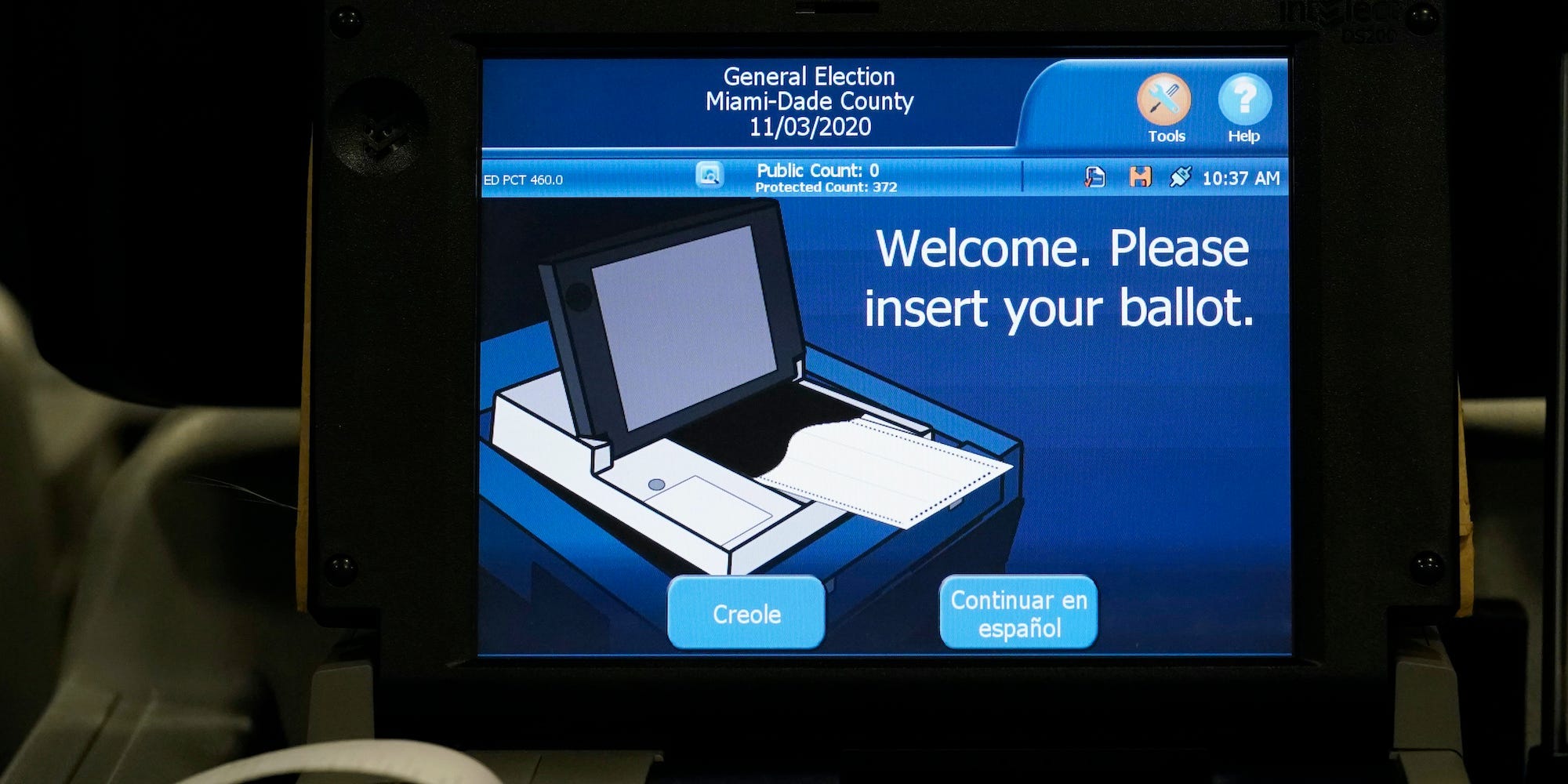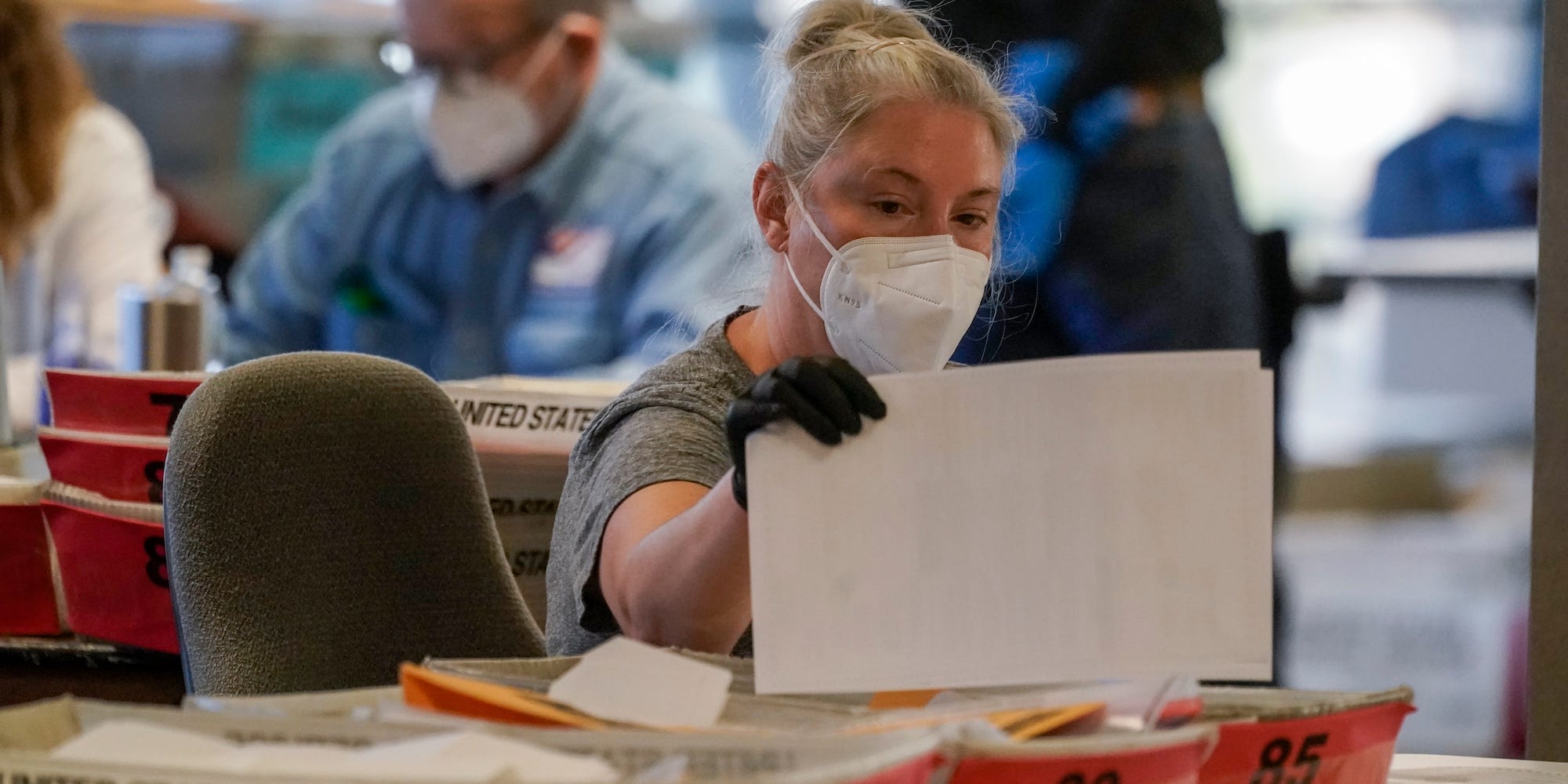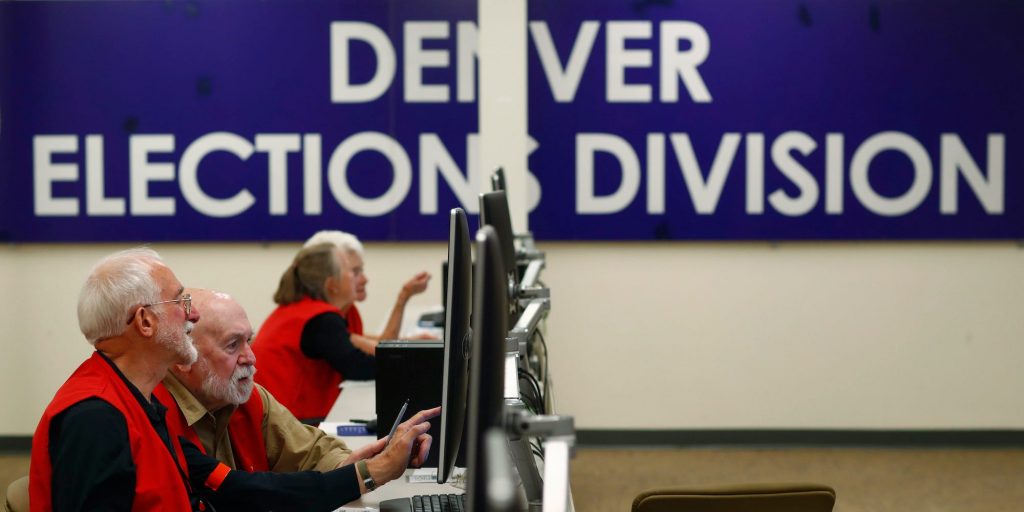
AP Photo/David Zalubowski, File
- Election officials and advocates want Congress to invest big sums in election infrastructure.
- Sen. Amy Klobuchar told Insider election funds "tied to specific policies" are an option for the upcoming budget.
- A group of state and local officials have called for $20 billion in federal funds, mostly to the local level.
- See more stories on Insider's business page.
The landmark bipartisan infrastructure deal negotiated by the White House and the Senate includes funds for roads, bridges, and trains, but not for another area the Department of Homeland Security has designated as critical infrastructure: elections.
Senate Democrats want to pass a budget packed with liberal priorities through reconciliation, which will allow them to do so with just a simple 51-vote majority instead of the usual 60 votes required to surpass the filibuster.
Experts and advocates say that the US' election system is in need of more support, especially after the pandemic – and the upcoming budget package could provide an opportunity.
"It is a possibility for the reconciliation bill, but we want to tie it to policy changes," Sen. Amy Klobuchar, chair of the Senate Rules Committee, told Insider at the Capitol this week.
It's unclear if giving funds as an incentive for policy changes as Klobuchar wants to would pass muster under the rules and guidelines governing reconciliation, particularly the Byrd Rule, which stipulates that measures "extraneous" to the budget should not be passed via reconciliation.
"Stay tuned," Klobuchar said when asked how much funding for elections she would advocate to include. She added that "none of it is a replacement for For the People," referring to Democrats' sweeping democracy reform and voting rights bill that Senate Republicans filibustered in late June. Klobuchar and other Senate Democrats are now working on a revised, slimmed-down version of the bill that focuses on voting.
"I'd like to see support for voting rights in reconciliation, but that alone will not cure the concerns around voter suppression bills around the country." Sen. Raphael Warnock of Georgia, a leading advocate in the Senate for voting rights legislation, told Insider. "So we've got to pass a voting rights law. I remain focused on it."

AP Photo/Lynne Sladky, File
GOP lawmakers are working to ban private grants local officials relied on in 2020.
Congress' last major investment in elections, the Help America Vote Act of 2002, allocated $3.5 billion for states to upgrade outdated punchcard and lever voting machines to more modern technology following the 2000 Florida election debacle.
Since then, both the amount of technology involved in elections and the cybersecurity threats facing officials have become much more sophisticated - and many advocates argue that federal investment hasn't kept pace.
"As we look at the needs across the country over the next decade, we estimate that there is going to be north of $50 billion of election infrastructure costs, most of those born at the local level," Tiana Epps-Johnson, executive director of the Center for Tech and Civic Life, told Insider.
In particular, Epps-Johnson said more funds are needed for counties to upgrade software and operating systems, purchase new voting equipment, fortify systems against cybersecurity threats, and invest in other physical infrastructure.
In a series of letters to congressional leaders first reported by VoteBeat in late June, 10 secretaries of state, 50 mayors, and 250 current and former local election officials from both parties called for $20 billion in federal investment for election infrastructure and security over the next 10 years, asking for two-thirds to go directly to local officials.
Congress last allocated election more HAVA grants for election security for fiscal years 2018 and 2020. The CARES Act of early 2020 included $400 million in grants for election officials, but it fell far short of the $2 billion outside experts said was needed to run a successful and secure election.
To make up the gap, many jurisdictions turned to private grants funded by organizations and philanthropists including Facebook founder Mark Zuckerberg and Priscilla Chan, and doled out by non-profits including CTCL. Backed in part by a $250 million grant from Zuckerberg and Chan, CTCL distributed $350 million in grant funds to 2,500 local election offices in 2020.
But now new state laws in places like Arizona, Georgia, and Florida ban local officials from accepting those private, philanthropic grants officials relied on for 2020, in large part because of Zuckerberg's involvement.
"Cybersecurity and protecting against disinformation costs money, and this is no longer a local problem, this is a national security issue," David Becker, CEIR's executive director, told Insider.

AP Photo/Morry Gash
'It's just that simple.'
While election security has previously been a source of bipartisan cooperation, not all GOP lawmakers are convinced more security funding is needed.
Sen. James Lankford of Oklahoma, who has championed election security in the past, told Insider that states are currently "awash" in election security funds, likely referring to still-unspent grant money from the Help America Vote Act.
Epps-Johnson of the Center for Tech and Civic Life argued in response that not only is a larger-scale investment needed, but Congress should target funds to localities and not states.
"When it comes to the ways that elections are administered here in the US, the vast majority of election operations and expenses are actually incurred at that local level. And oftentimes we find that funds aren't making it where they're needed most," she said.
Milwaukee Mayor Tom Barrett told Insider that a grant from CTCL allowed the city to cover the costs of paying poll workers and accommodate the spike in demand for voting by mail, including investing in ballot drop boxes and envelope openers.
"For many local governments, Milwaukee among them, we are so strapped fiscally that it became difficult," Barrett said. "So we benefited from the grant from [CTCL]. And it became clear to us that for not just Milwaukee, but cities across the nation to continue to do one of the most basic aspects of our democracy, it would make sense for the federal government to help."
Adrian Fontes, the former top election official in Maricopa County, Arizona echoed a similar sentiment. Fontes testified before a House committee on Wednesday that the $23 million budgeted to the 2020 election before the pandemic didn't fully cover the total cost for Maricopa, which also received a CTCL grant.
"They're federal elections, so the federal government ought to pay for them. And that's a pretty common-sense way of looking at things," Fontes, now a Democratic candidate for Arizona secretary of state, told Insider.
Both Barrett and Fontes told Insider that GOP lawmakers ultimately can't have it both ways by seeking to ban private support while not prioritizing government funding.
"It's hypocritical, it's stupid, and I don't think anybody is falling for it," Fontes said. "If they don't want us to have to be desperate enough to take Mark Zuckerberg's money, then they need to appropriately fund federal elections. It's just that simple."

